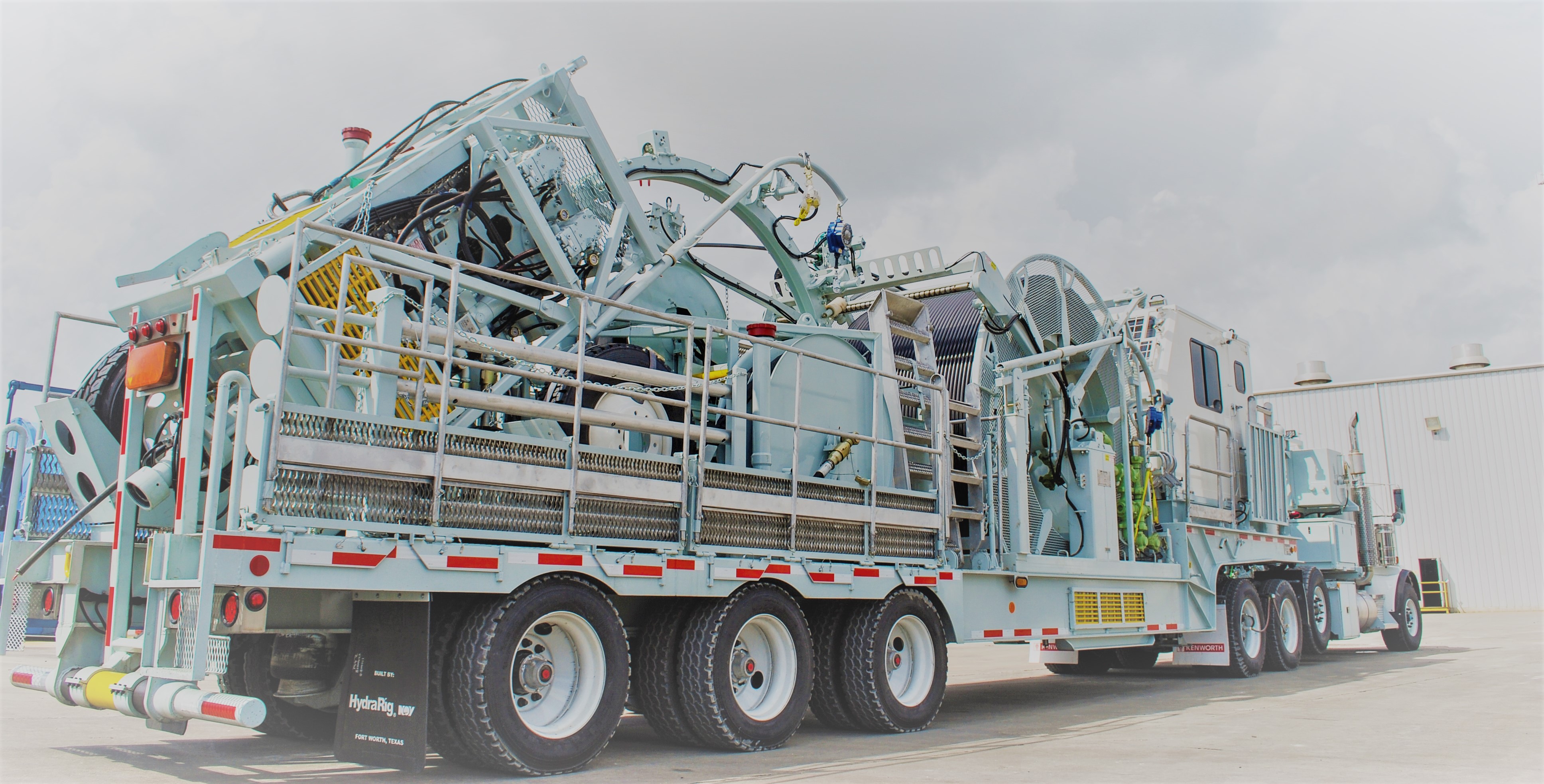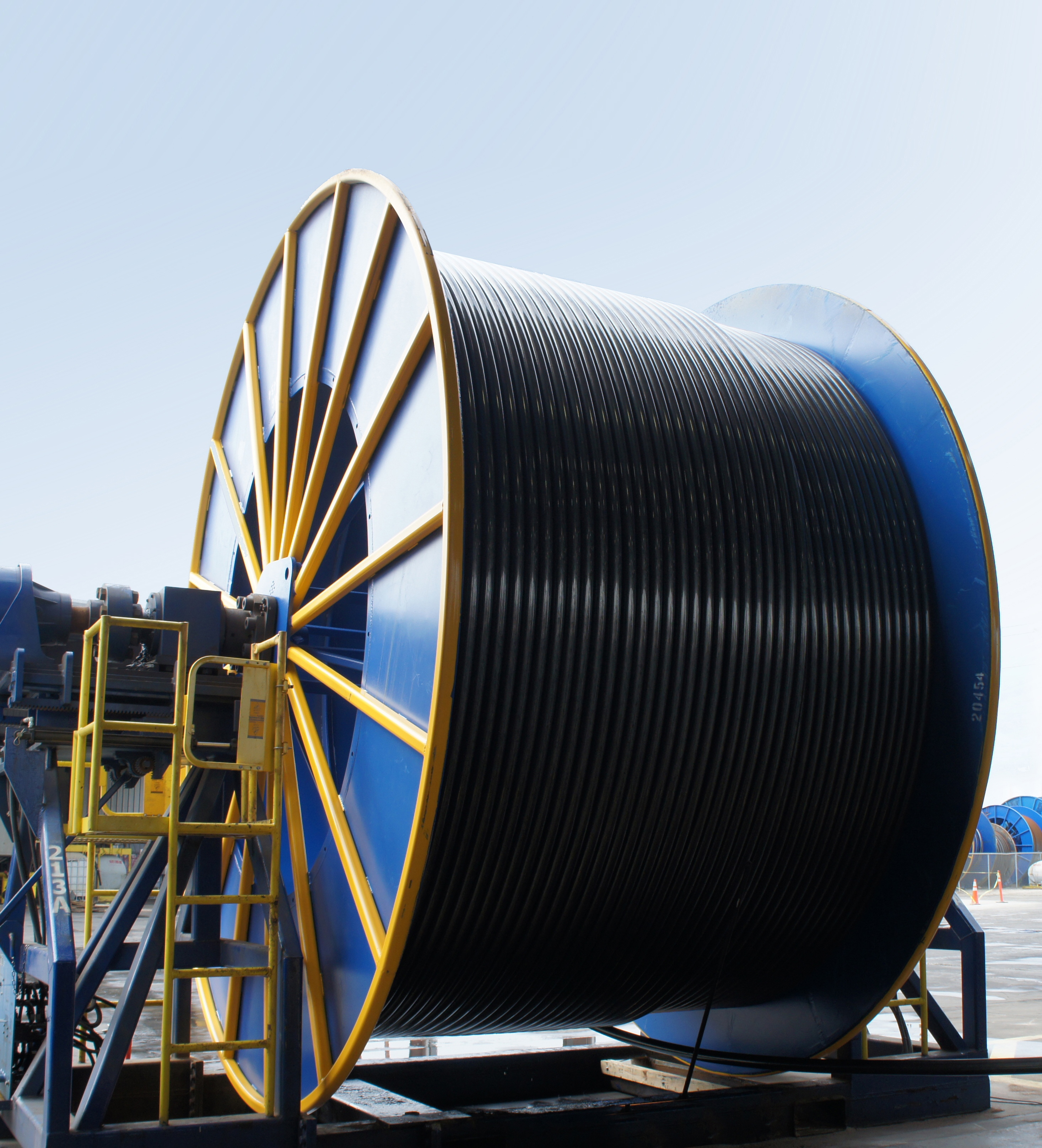New surface inspection system cuts rejection rate for oil and gas coils
Coiled tubing is widely used in the energy industry to maintain the operability of oil and gas wells and to ensure the maximum amount of energy is extracted from each site. ArcelorMittal Europe – Flat Products is one of the few steelmakers in the world to provide the highly technical steels used to create this specialised product. As well as revamping its service offer to coiled tubing suppliers, ArcelorMittal has recently installed a new skelp surface inspection system on the pickling line which ensures all defects are identified before a coil leaves the mill.
Although the rejection rate for ArcelorMittal’s oil and gas grades is at such a low level it is a reference for the market, the mill at Fos-sur-Mer decided to install an automatic surface inspection system (ASIS) on the pickling line. The new system complements a surface inspection device on the hot rolling mill which has been continuously scanning coiled tubing products for several years.
“The new ASIS covers 100 percent of the surface area and notes contrast variations on the steel’s surface,” says Pierre Fize, global account manager for the coiled tubing market at ArcelorMittal International. “If a variation is detected, the defect is recorded and compared against a database.”
Benefits for automotive, energy, and other critical sectors
It’s important to note that the ASIS doesn’t just benefit producers of coiled tubing Pierre Fize explains: “The ASIS we have deployed are used to scan all coils destined for exposed applications in the automotive, oil and gas, and other critical industrial markets. It will enhance the reliability of ArcelorMittal’s grades for the energy sector even further and contribute to the improved operational safety of oil and gas wells."
“On the pickling line, the ASIS utilises much higher definition optical cameras,” notes Frederic Desanlis who oversees the new system in Fos-sur-Mer. “They offer almost seven times the pixilation compared to our previous system.”
Quality operators are alerted in real-time when a defect is noted explains Pierre Fize: “The final decision is made by the quality supervisor. The coil is placed into quarantine and cannot be released unless the supervisor approves.”
The cameras scan the whole surface and detect thousands of variations per coil. Accurate defect detection is achieved by training the system, and our certified quality operators, to accurately detect detrimental defects for every application, while running in full-production mode.
Finding a defect at the mill is extremely cost effective for both ArcelorMittal and the customer as Kevin Elliott explains: “Coiled tubing is a continuous tube product, often exceeding 7,000 meters. A defect in one hot rolled coil could cause the rejection of an entire assembly which is made from multiple coils. When Quality Tubing detects a surface defect, that might mean we need to scrap up to 50 tonnes of steel. Clearly, defects are extremely costly to Quality Tubing.”
Service enhanced, new products in development

Coiled tubing is typically deployed using special truck rigs to ensure a quick response
Eighty percent of the coiled tubing produced in the world comes from Houston (USA). To further improve its offer to manufacturers in the region, ArcelorMittal Europe – Flat Products has recently revamped its service offer notes Henri Olivier, an account manager for ArcelorMittal International in Houston, who has been working closely with ArcelorMittal’s coiled tubing customers for over 25 years: “Timely deliveries are critical for coiled tubing producers as they often require a high volume of material over a short period of time. To address this, we have redefined our inventory strategy in France. This enables us to fulfil orders quickly. We have also established a dedicated team to track orders.”
ArcelorMittal already offers a wide diversity of grades and dimensions for the oil and gas market. This includes thick and high strength grades ranging from 1000 to 1400 MPa.
There are also new products on the drawing board including grades with strength levels that were thought impossible until recently. Rapid taper coils are also under development. They offer unique design versatility for extended-reach horizontal wells with an hour-glass design.
Coiled tubes can be up to 18 kilometres in length
“We’ve produced variable thickness coils since 2012 where there is difference of 0.8 millimetres (mm) between one end of the coil and the other,” explains Pierre Fize. “We’re now working on rapid taper coils which will ultimately have an end-to-end thickness difference of more than 2 mm. Our aim is to have these coils on the market by the end of 2019.”

Kevin Elliott, Product engineering manager for Quality Tubing
“Surface defects in the steels we use to make our coiled tubing are a cause for rejection, so the new surface inspection system will potentially save Quality Tubing hundreds of tonnes of steel annually,” says Kevin Elliott, product engineering manager for long-term ArcelorMittal customer Quality Tubing. “This is a pro-active approach from ArcelorMittal to improve the quality of an already high-quality product.”
For more info, visit our
oil and gas section
Image courtesy: Quality Tubing















.jpg)



